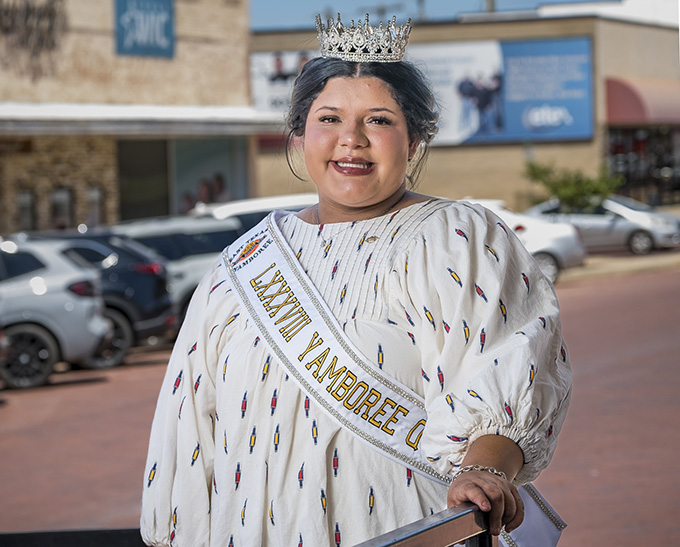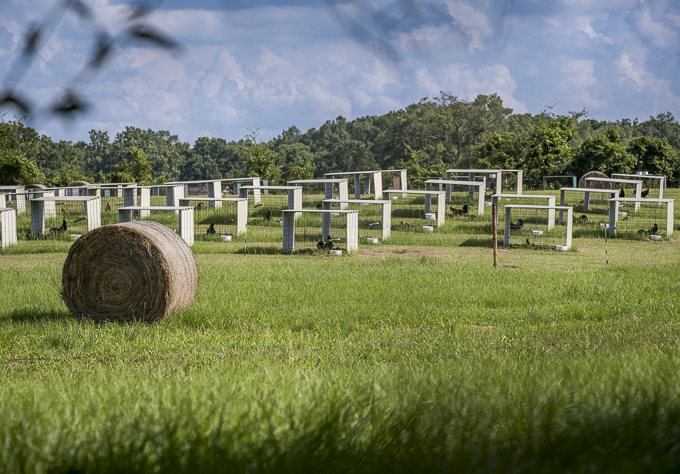Texas Republicans struggle to defend redistricting as hearings grow contentious
Published 7:19 pm Tuesday, July 29, 2025
AUSTIN — A key Texas Senate Republican chairman leading congressional redistricting hearings in Austin said Tuesday he is skeptical about assertions by the U.S. Department of Justice that the current congressional district maps in the state violate voters’ rights.
During a public hearing on redrawing district lines, Sen. Phil King of Weatherford, who chairs the committee overseeing the effort in the Senate, referred to a letter sent to Gov. Greg Abbott by the Department of Justice that alleges four Democratic congressional districts in Texas were drawn based on race and therefore are unconstitutional.
A growing number of Republicans, who voted overwhelmingly in 2021 to approve the current state map during regular decennial redistricting, are rejecting those assertions now — even as Abbott cites them as the reason he added redistricting to the list of 18 priorities for the special legislative session that started a week ago.
Trending
Republicans have repeatedly stood up for those maps in court after Democrats sued to stop them from diluting their voting power.
“I want to say right now, I don’t think the map that is in place for Congress today is discriminatory,” King said Tuesday. “I don’t agree with the DOJ letter, but I haven’t seen their underlying facts to it. I want to state that I believe the map I voted for … was a legal map. I think the testimony that I’ve seen in trial supports that.”
He added, however, that if state leaders want to redraw the lines, they can and will — and they’ll do it to help Republicans in Washington.
The comments from King, a leader in the hearings who has long been involved in redistricting efforts in the legislature, are the most recent from an ever-growing list of key Republicans who object to the letter as they hear Texans testify in hourslong hearings on how changing their districts — and thus their voting power — would impact them.
That includes Rep. Cody Vasut, R-Angleton, King’s counterpart in the House as chair of that chamber’s Select Committee on Redistricting, who said last week he believes the current maps are legal.
“The chair’s position is that every map he’s ever voted on complies with the Voting Rights Act,” Vasut said.
Trending
Redrawing those districts to include enough Republican voters to flip them in next year’s election cycle could help Republicans retain control of Congress and strengthen President Donald Trump’s attempts to further his agenda.
One of the districts in question is the North Texas district represented by U.S. Rep. Marc Veasey, D-Fort Worth, which includes parts of King’s district. Redrawing his seat puts him and any other Democratic contender for that district at risk in the November 2026 midterm elections.
In testimony before King’s committee on Tuesday, Veasey pointed out that leading Republicans, including Abbott, have defended the constitutionality of these same maps in the past.
“Just a few years ago, Greg Abbott and Republican lawmakers swore under oath that their map was race-blind, and that’s a quote… and now they claim that the same map is illegal because it was too race-conscious. So which is it? Were they lying then? Are they lying now?” Veasey said. “The cruelty is the point.”
King’s remarks come a day before his committee is set to vote on whether to use a subpoena to compel the testimony of Justice Department attorney Harmeet Dhillon, who wrote the letter Abbott cited in placing redistricting on the special session agenda.
A request was sent Friday at the behest of committee Democrats, who say that without the letter, redistricting likely never would have been added to a special session agenda already packed with more pressing issues such as flood relief and emergency preparedness in the wake of the devastating Hill Country floods.
The House’s redistricting committee has also requested Dhillon’s testimony. At a redistricting hearing Monday in Arlington, Vasut said he has not heard back from the Justice Department.
In Dhillon’s July 7 letter to Abbott and the attorney general’s office, she argued that three districts in the Houston area and Veasey’s North Texas district were racially gerrymandered because they have a majority population of nonwhite voters.
Attorney General Ken Paxton responded four days later, indicating that while he supports redistricting, he disagreed with the assertion that the 2021 maps were illegal, citing testimony taken during a recent civil trial on the maps in El Paso.
“The evidence at that trial was clear and unequivocal: the Texas legislature did not pass race-based electoral districts for any of those three political maps,” Paxton wrote.
King has said he doubts the committee has the power to subpoena a federal officer but would be willing to bring it up for a vote. The motion would need a two-thirds majority to be successful.
He has also stressed throughout several virtual hearings from the Capitol that while he doesn’t see a legal need to do it, lawmakers retain the right to redraw the districts.
Seven hearings across the state have brought Texans to rallies, theaters, community centers and Zoom rooms online, with the overwhelming majority of them testifying against redrawing the lines.
Lawmakers have not released any proposed maps, focusing testimony less on a specific map and more on the idea and reasons to redraw it. King said that a group headed by conservative Virginia redistricting activist Adam Kincaid is working on a map. Kincaid was involved in the creation of the 2021 maps that were challenged in court.
At the end of the Tuesday hearing, the last one planned by the Senate before maps are set to come out, Sen. Carol Alvarado, D-Houston, pointed out to King that most of those who have attended the hearings throughout the week were against the idea and asked him what that might mean.
“Is it already decided that we will redraw the congressional lines in this session? Is there an option that, based on the testimony and what the outcome of the maps look like, that maybe this body says, ‘You know what, we’re not going to do it this time’?” Alvarado asked.
King responded that some of the opponents to redistricting also testified that they didn’t like the districts as they are currently drawn — further evidenced by the fact that they are still being challenged in court by Democrats who believe the 2021 map violates the Voting Rights Act.
Throughout the backlash in the hearings, neither King nor other Republican leaders have given any indication they plan to block the effort — even as they question the letter that catalyzed it.
Democrats have continued to weigh whether they might flee the state to shut down the special session. Some have been fundraising on the possibility of breaking quorum to pay for what could be an extended time out of state, according to the Texas Tribune.
Democrats employed similar tactics in 2003, the last time the Legislature conducted a mid-decade redrawing of district lines, and again in 2021 to halt a conservative election bill. In both cases, they only succeeded in delaying the passage of the Republican-led bills.
Some Democratic House members have also traveled recently to left-leaning states to speak to top lawmakers about the ongoing redistricting battle in Texas. On Tuesday, seven lawmakers traveled to New Mexico to meet with Gov. Michelle Lujan Grisham.
“Our message to leaders across the country has been simple: if they can steal five seats in Texas by breaking the rules, your state is next,” Rep. Jon Rosenthal, D-Houston, said in a statement.
Democrats met with California Gov. Gavin Newsom and Illinois Gov. JB Pritzker last week.
Many consider their actions a tacit threat that Democrat-led states would conduct their own partisan gerrymanders to counteract Texas if Republicans in Austin follow through on redistricting. None of those state leaders has committed to the idea.







